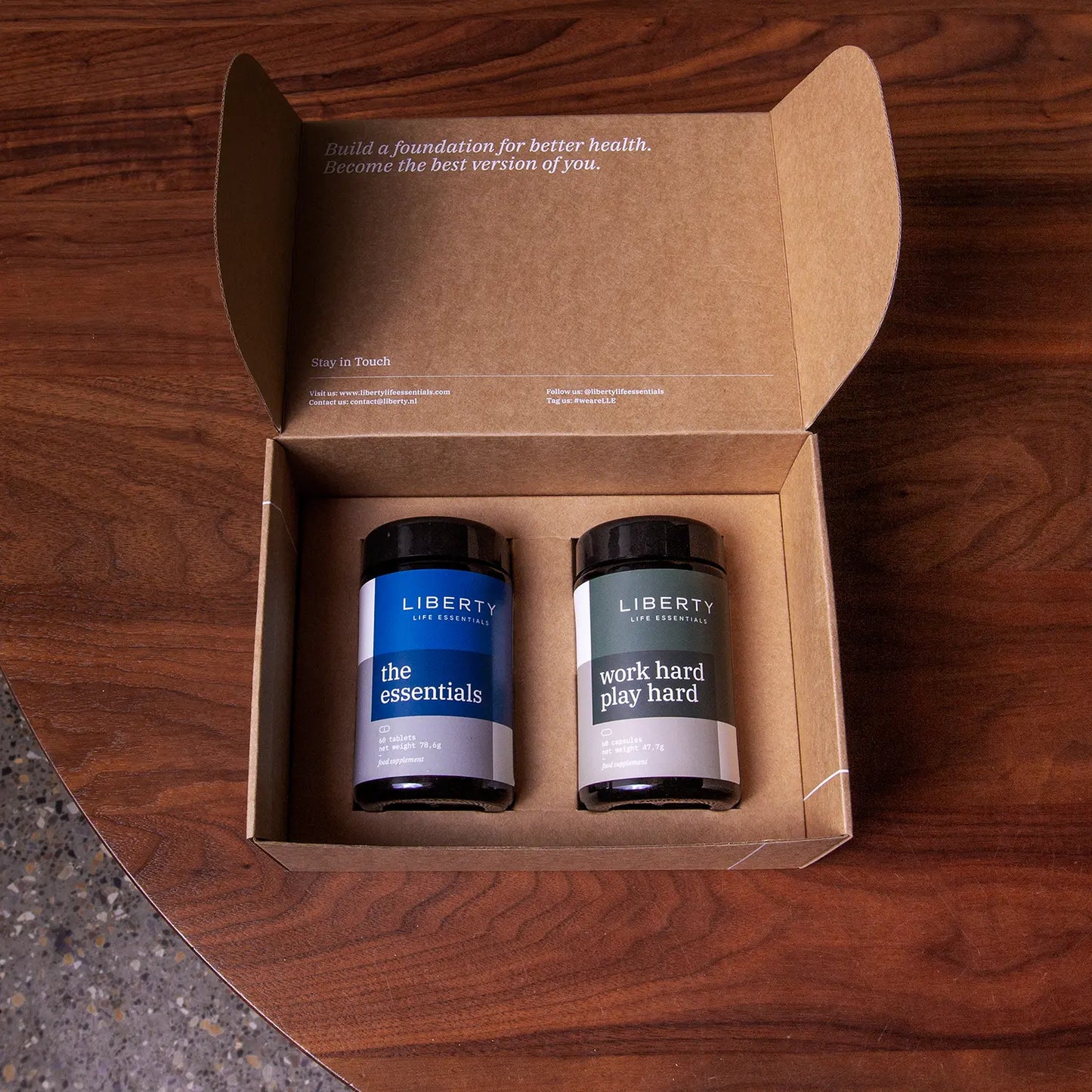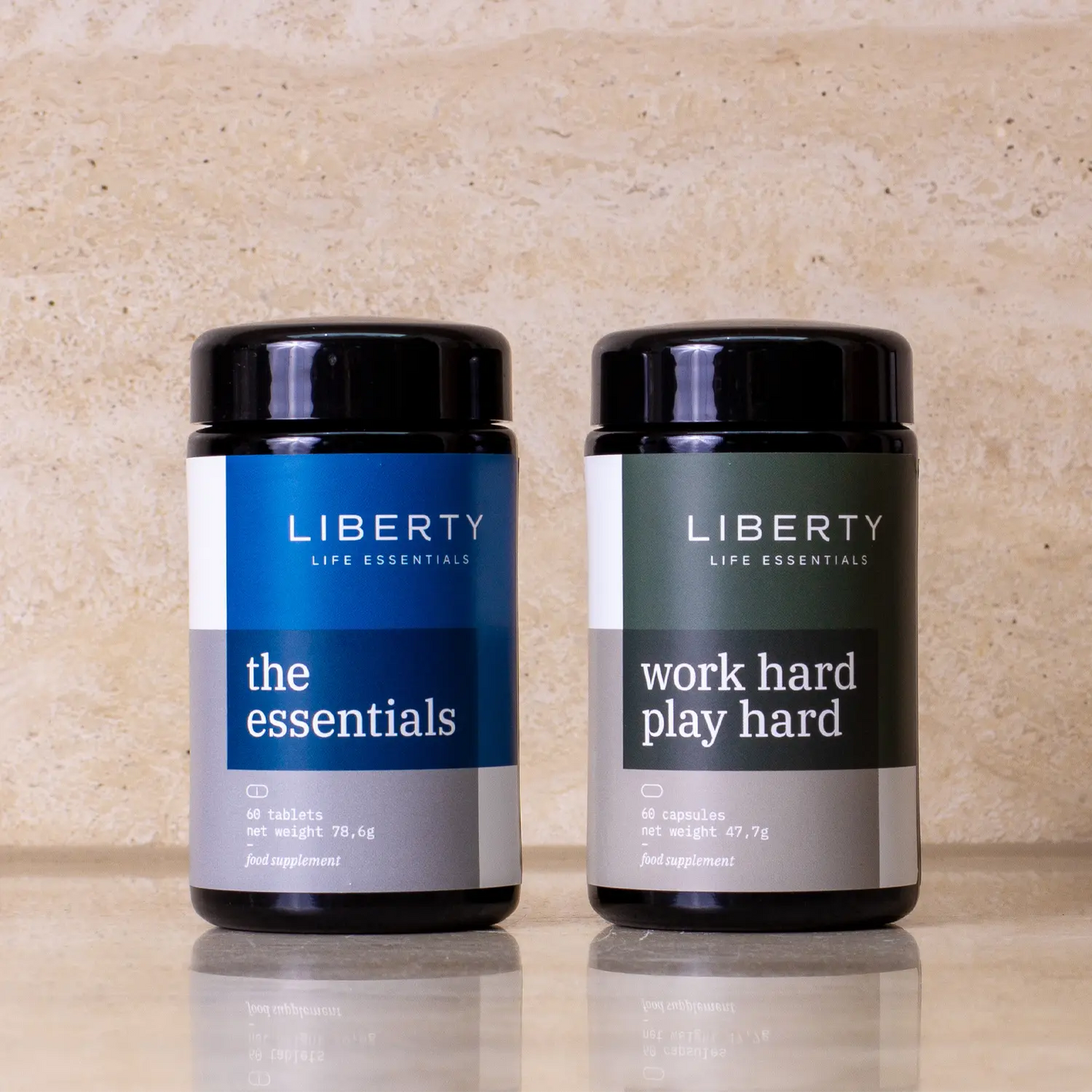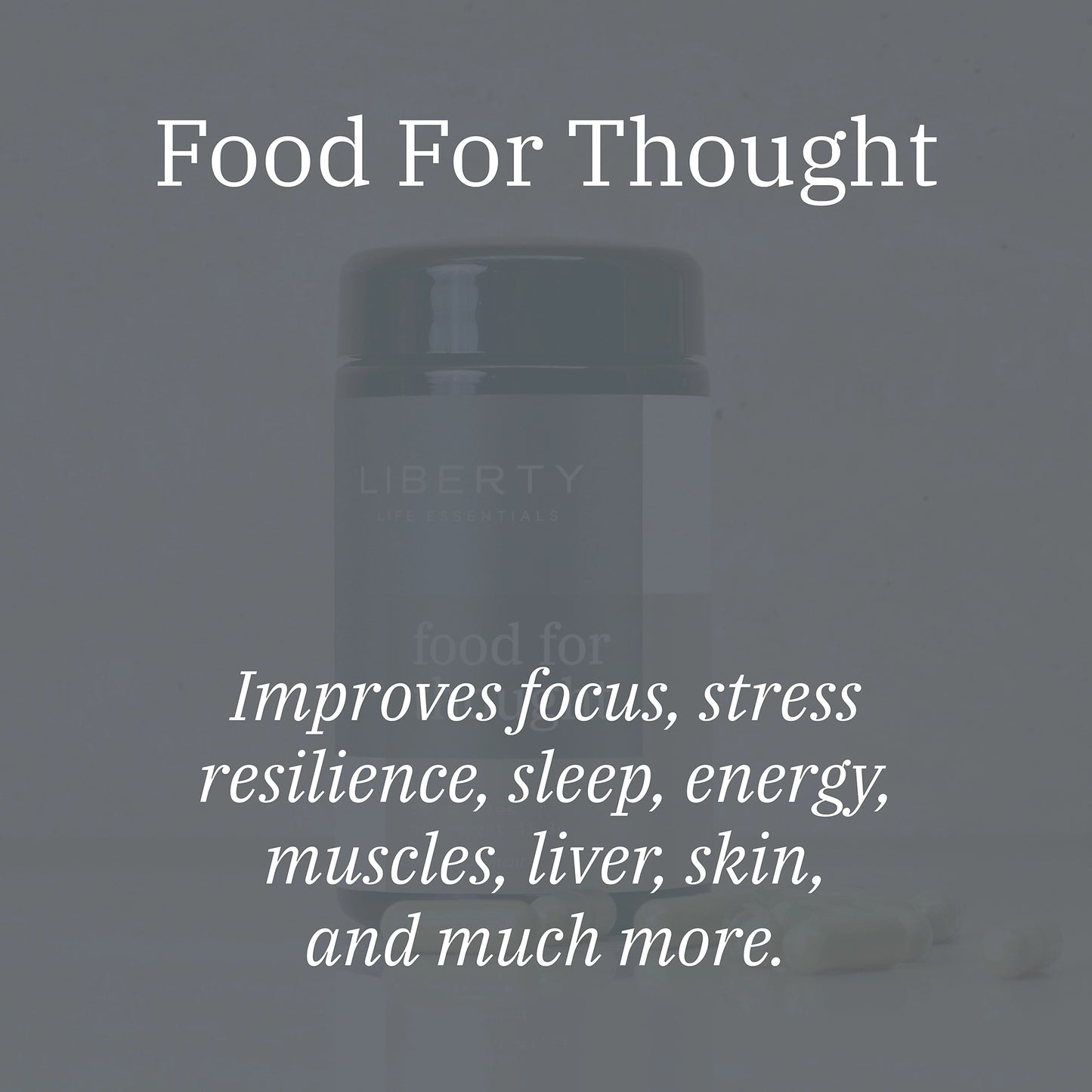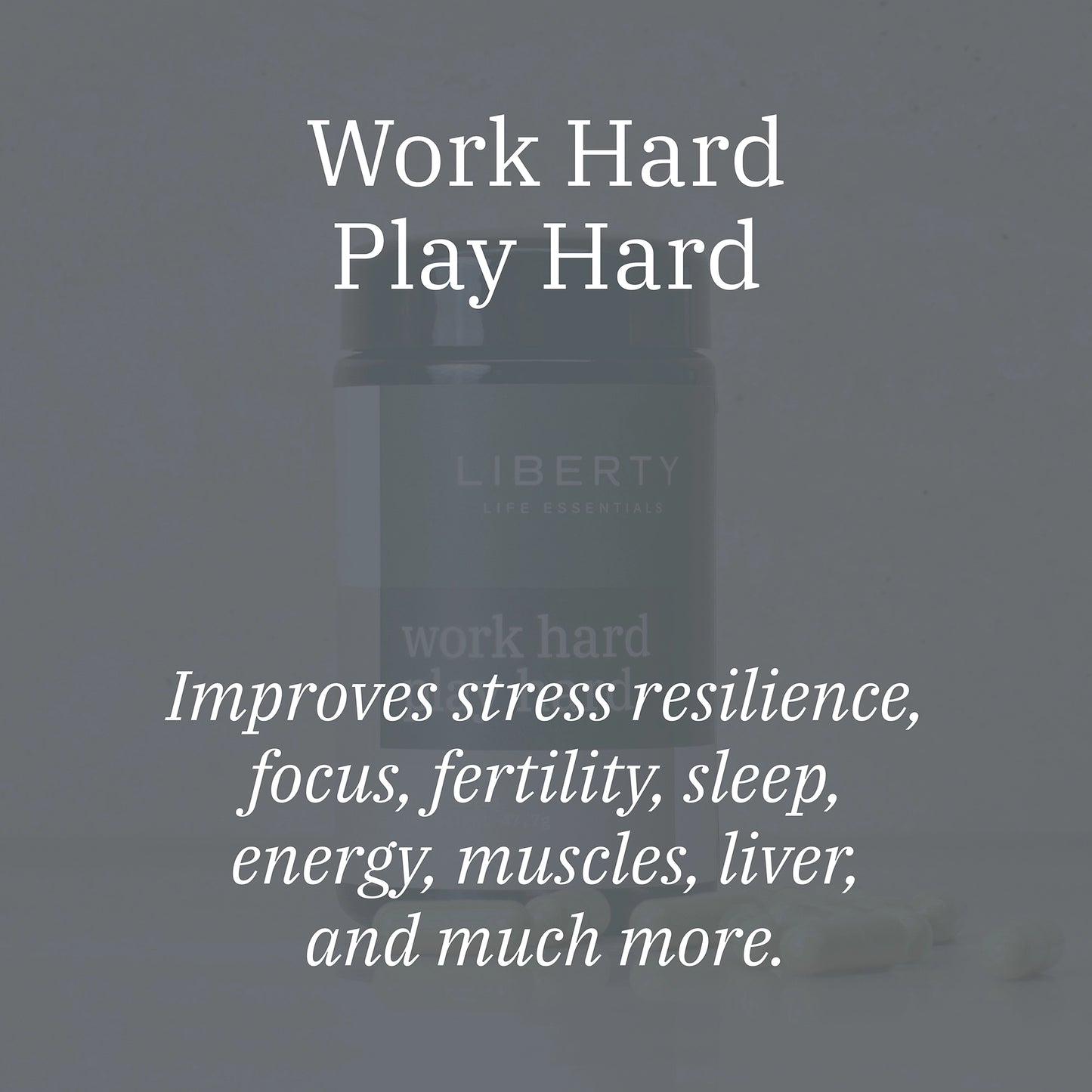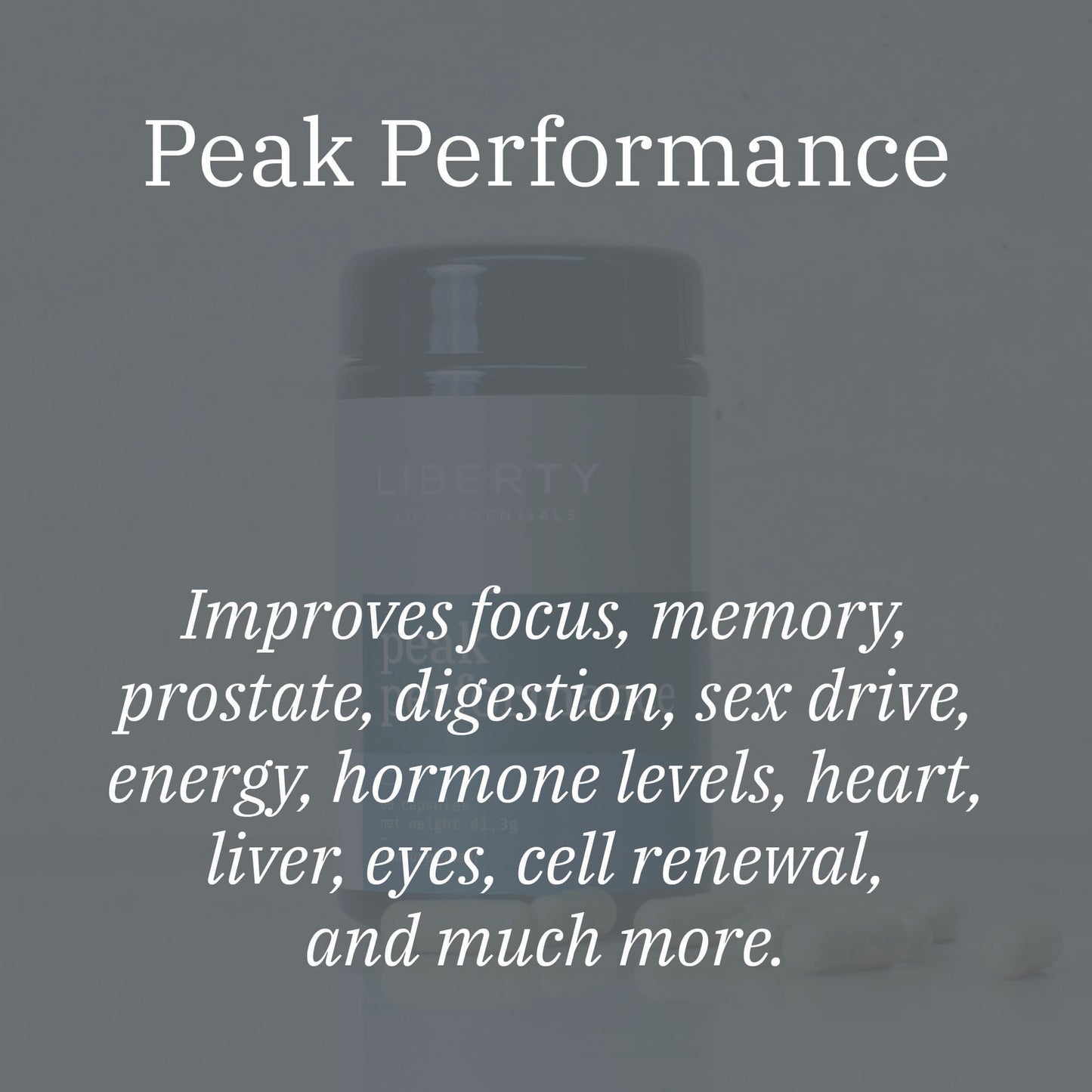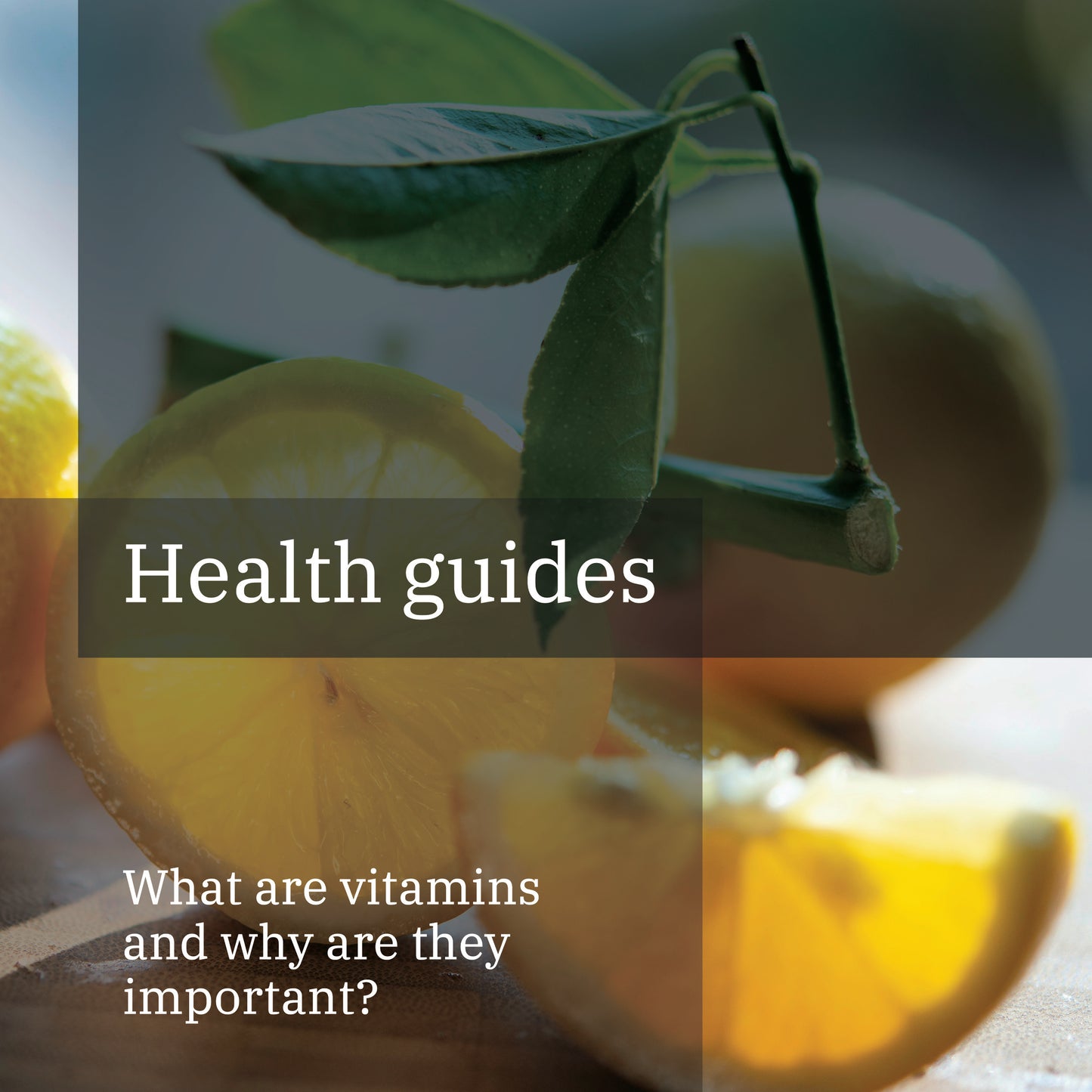
Highlights
- There are 13 known vitamins: A, C, D, E, K and a group of 8 B vitamins.
- Each vitamin plays its own crucial role in the functioning of the human body.
- A shortage of vitamins leads to a weakend immune system, lack of energy and over time chronic deficiencies and diseases, and even organ failure.
- Since the 1950s, the nutritional value of many fruits and vegetables has dropped significantly. Up to 38%.
- 85% of Dutch men below 50 don't eat enough fruit.
- The easiest way to compensate for this loss of vitamins and minerals in our daily diet is to take them in supplemental form, preferably consistently on a daily basis.
- When deciding which supplement to buy, always look at the Reference Intake (RI) percentage on the back of the jar or product website. Aim to get as close to 100% or higher for vitamins, and between 70% and 120% for minerals.
The full story
We all know that regular exercise, a clean diet, and cutting down on booze are musts if we want to look after our health. But are these basic steps really enough? Are they sufficient for you, as a man, to feel strong, vital, and perform at your best?
It turns out they’re not. A nutritious diet is of course critical to your health and wellbeing, but we have a big problem in this 21st century world…Our food sources don’t contain the same levels of vitamins and minerals as they did half a century ago. This is down to various factors including over-processing of food, and over-farming to supply food for growing populations – which has led to soils being depleted of these vital micronutrients which literally keep us alive.
This is why it’s important for men of all ages to supplement with vitamins in order to ensure your body is supplied with the right tools to keep your body functioning optimally.
But what are vitamins and why are they important?
What is a Vitamin?
Every part of the human body is made up of trillions of tiny cells – and vitamins (along with minerals) are a group of micronutrients which play a key role in the healthy functioning of your cells. Because they support the body at this deep, cellular level, vitamins are important for growth, development, metabolism, and preventing sickness and disease. They are also central to the regulation of enzymes, hormones, and other molecules involved in maintaining health and vitality.
What Vitamins Are There And What Does Each Vitamin Do?
There are 13 essential vitamins – A, C, D, E, K and the group of B vitamins (B1 thiamine, B2 riboflavin, B3 niacin, B5 pantothenic acid, B6 pyridoxine, B7 biotin, B9 folate/folic acid, B12 cyanocobalamin).
Each vitamin has a different job to help keep the body healthy and working properly.
Vitamin A: Important for eyesight, immune system function, and cell growth. (Food sources: liver, carrots, and spinach).
Vitamin B group as listed above: The B complex vitamins are involved in energy production, and the healthy functioning of the nervous system. (Food sources: meat, fish, dairy, and leafy greens).
Vitamin C: Strengthens the immune system, essential for production of collagen, and antioxidant activity. (Food sources: oranges, lemons, other citrus fruits, strawberries, and bell peppers).
Vitamin D: Important for good bone health and calcium absorption. Exposure to adequate natural sunlight daily can supply the body with sufficient vitamin D…but we don’t all live in the Mediterranean! (Food sources: fatty fish and dairy products).
Vitamin E: Acts as an antioxidant fighting harmful free radicals in the body and supports cell function. (Food sources: nuts, seeds, and vegetable oils).
Vitamin K: Necessary for blood clotting and bone health. (Food sources: leafy greens, broccoli, and soybeans).
It’s worth noting that vitamins are also split into two categories: fat-soluble and water-soluble.
- Fat-soluble vitamins are stored in the body's liver, fatty tissue, and muscles. Vitamins A, D, E, and K are in this category, all being more easily absorbed by the body in the presence of dietary fat.
- Water-soluble vitamins are not stored in the body. The nine water-soluble vitamins are vitamin C and all the B vitamins. Any leftover amounts of these leave the body through the urine. They have to be consumed on a regular basis to prevent deficiencies in the body. The only exception to this is vitamin B12, which can be stored in the liver for many years – but it is still common for people to have B12 deficiencies.
Why Are Vitamins So Important For Your Health?
It all goes back to basics – vitamins support your body at the cellular level. They are the micronutrients every cell in your body depends upon to repair, replenish, and regenerate. From your heart and your liver to your skin and your hair, every organ and tissue requires a steady intake of vitamins.
What happens when there is a shortage? The cells become depleted, deficiencies lead to a weakend immune system, lack of energy and over time chronic deficiencies and diseases, and even organ failure.
How Can You Improve Your Vitamin Intake?
Fruits and vegetables have been our main source of vitamins for millennia. But, as mentioned earlier, the nutritional value of many vegetables, from asparagus to potatoes, has dropped significantly since the 1950s.
A 2004 US study found that the nutritional content of some garden crops are up to 38% lower compared to foods in the middle of the 20th century. The situation is made even worse by the fact that supermarket shelves are filled with processed junk foods which have stripped the nutrients from foods even further.
Furthermore, the Dutch health authority (RIVM) has set a daily minimum of 200g fruit and 200g vegetables to achieve our recommended daily vitamine intake. Amongst Dutch men below 50, it is estimated that 85% doesn't eat enough fruit, while 78% doesn't eat enough vegetables.
What’s the answer? In order to build a foundation for better health and vitality, we’ve got to replace the nutrition that we used to get from our diets, but has been lost over time.
Fortunately, you can take positive steps to prevent this sort of decline by supporting your body through supplementation. The easiest way to improve your vitamin intake is to take them in supplemental form, preferably consistently on a daily basis.
Our “The Essentials” product gives men of all ages the essential nutrients that we all need: a full spectrum of vitamins, minerals, and herbs specifically formulated for the nutritional demands of men. Promotes immunity, sleep, healthy hair, joints, eyes, hormone stability, digestion, and much more.

